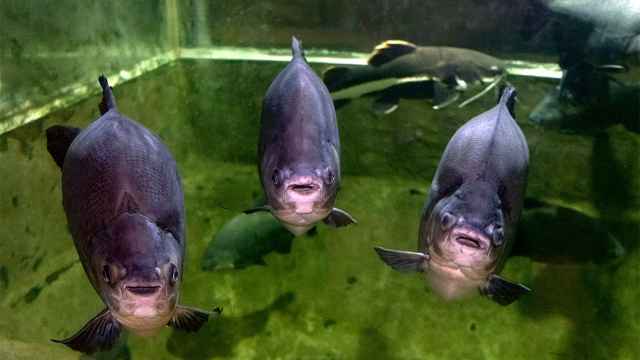The shores of Balaklava Bay in Russian-annexed Crimea became unexpectedly swarmed with aurelia jellyfish this month, photos posted online show.
News of the jelly invasion quickly spread across the internet, with photos gaining thousands of likes on Instagram.
Social media users said that the bay has turned into a “kissel coast,” comparing the waters to a traditional Russian fruit-based drink with a jelly-like consistency.
Here's a look at the rare aquatic display:
“I don’t like jellyfish, but today’s ‘kissel coasts’ were wonderful!” one user remarked at the sight.
Some were surprised that ducks were not afraid to swim in the waters and appeared to feel quite comfortable near the jellyfish.
Others described the sight as disgusting and said they would never swim there.
Jellyfish are a normal sight in Balaklava Bay, but they're rarely seen in such large numbers.
“It just seems that there are a lot of jellyfish — this year there were quite a few of them,” Boris Aninsky, a leading research worker at the A.O. Kovalevsky Institute of Biology of the Southern Seas, told the Yuga.ru news website.
Aninsky said that the jellyfish were brought to Balaklava's shores by a southeast wind. If the wind had blown in the opposite direction, the jellyfish would be in Sevastopol, he added.
These jellyfish aren't lethal to humans, though they can leave a burn similar to nettle leaves.
The only thing residents can do now is to enjoy the unusual display of nature.
A Message from The Moscow Times:
Dear readers,
We are facing unprecedented challenges. Russia's Prosecutor General's Office has designated The Moscow Times as an "undesirable" organization, criminalizing our work and putting our staff at risk of prosecution. This follows our earlier unjust labeling as a "foreign agent."
These actions are direct attempts to silence independent journalism in Russia. The authorities claim our work "discredits the decisions of the Russian leadership." We see things differently: we strive to provide accurate, unbiased reporting on Russia.
We, the journalists of The Moscow Times, refuse to be silenced. But to continue our work, we need your help.
Your support, no matter how small, makes a world of difference. If you can, please support us monthly starting from just $2. It's quick to set up, and every contribution makes a significant impact.
By supporting The Moscow Times, you're defending open, independent journalism in the face of repression. Thank you for standing with us.
Remind me later.






